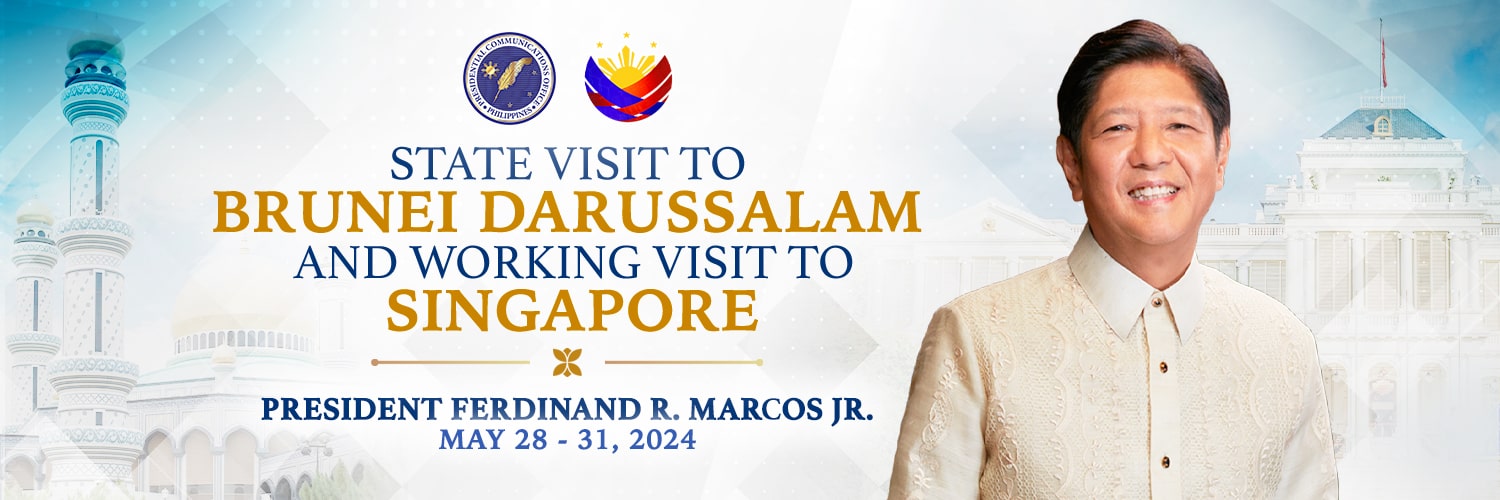
President Ferdinand R. Marcos Jr. made history on Friday as the first Philippine leader who delivered the keynote address to open the 21st edition of the International Institute for Strategic Studies (IISS) Shangri-La Dialogue in Singapore focusing on global defense and security affairs.
The Shangri-La Dialogue is Asia’s annual premier defense summit that brings together government leaders, senior officials, experts, and business icons encouraging close cooperation between countries to address regional security challenges.
In his speech before the jam-packed IISS Shangri-La Dialogue, President Marcos highlighted the significance of maintaining peace and stability in the international community that upholds the rule of law, and enables countries to thrive in pursuit of their respective aspirations.
“We renew this commitment at this turbulent juncture of our history. I will repeat what I said at the United Nations almost two years ago: Amidst challenging global tides, an important ballast stabilizes our common vessel: Our “open, inclusive, and rules-based international order that is governed by international law and informed by the principles of equity and of justice,” the President said.
President Marcos underscored the Philippines’ contribution and involvement in the past years as one of the architects of new peace among nations right from when the world order was built in 1945.
He said the Philippines has always been part of this history, noting how the country stood up for other regions such as Africa and Asia, opposing attempts to dilute the inviolability of the right to self-determination, and helped enshrine the right to independence in the Charter of the United Nations (UN).
In 1982, we led the global community to unanimously adopt the Manila Declaration on the Peaceful Settlement of Disputes which affirmed that “differences amongst nations must always be solved peacefully, through legal and diplomatic processes, [and] never through the threat or the use of force.”
The President also discussed seven realities or challenges emerging in the Indo-Pacific region amidst global development and threats, geopolitical polarities and strategic competitions that either make or threaten its existence and hard-won peace.
He said that “current juncture does not call for a revision of the regional order” but rather calls for a reaffirmation of the wisdom of San Francisco in 1945 which instilled equality of all states, of Bangkok in 1967 that supports ASEAN’s efforts to build a rules-based, people-oriented, and people-centered regional community, and of Manila in 1982, that affirmed common understanding of how international law envisions the peaceful settlement of disputes.
“Those who came before us worked painstakingly throughout the last century to bury the era of spheres of influence and of buffer states. We should not allow its ghost to haunt our region once again,” President Marcos said.
On the issues on maritime threats and insecurity in the Philippines, particularly in the West Philippine Sea (WPS), President Marcos stood firm during the summit in protecting the country’s sovereign rights, adhering to the rules-based international order and to the 1982 United Nations Convention on the Law of the Sea (UNCLOS).
The WPS, the President said, is part of the country’s lifeblood, hence, he will not allow the country to yield even one square inch or even a millimeter of its territory and maritime zones.
With all the provocative, unilateral, and illegal actions that continue to violate our sovereignty, sovereign rights, and jurisdiction, the Philippines, he said, are still committed to promote peace and resolve issues through “dialogue and diplomacy”, noting that the region and the world cannot afford any other future for the South China Sea other than the one envisioned by ASEAN which is “a sea of peace, stability, and prosperity.”
“The 1982 UNCLOS and the binding 2016 Arbitral Award provide a solid foundation for the peaceful resolution and management of disputes. Our policy in the South China Sea is built upon these two touchstones. We will continue to work with ASEAN and China towards an effective and substantive code of conduct, one that is firmly moored in UNCLOS,” the President stressed.
The Chief Executive also tackled the creation of world-class Armed Forces of the Philippines for peace through the Modernization Program.
He also declared continued strategic partnerships with other nations and wished to make more future collaborations and cooperations, not only in defense but also in environmental, economic, people-to-people relations, and sustainable development.
“In all our multilateral engagements, we seek to bridge global conversations with our unique regional perspectives,” the President said.
“Geopolitics must not distract us from our fundamental duty as civil servants, as public intellectuals, as statesmen: To deliver for our peoples, and to safeguard the future for the coming generations. This is the reason why we strive for stability, for security, and for peace,” he said.
President Marcos also said it has “become even more crucial for us to assert that the future of our region will be driven not by one or two powerful countries, but by all of us.”
“Peace, security, and stability are the business of all countries. The interests and responsibilities of all states in the community of nations must always be acknowledged. All our voices must be equally heard,” he said.
The summit previously featured Singaporean Prime Minister Lee Hsien Loong, Indian Prime Minister Narendra Modi, Japanese Prime Minister Kishida Fumio, and Australian Prime Minister Anthony Albanese, as keynote speakers and now, President Ferdinand R. Marcos Jr.
President Marcos has become a very important delegate in this year’s dialogue attended by more than 550 delegates from the defense and security establishments of over 40 nations around the world.
President Marcos was invited by then-Prime Minister Lee.
In January this year, the IISS announced that the “the Philippines under President Marcos Jr. has elevated its contribution to regional stability and security.”
Since taking office in June 2022, the IISS noted President Marcos Jr. has strengthened and expanded the Philippines’ strategic partnerships throughout the Asia-Pacific region and beyond despite the period of geopolitical unpredictability. PND

